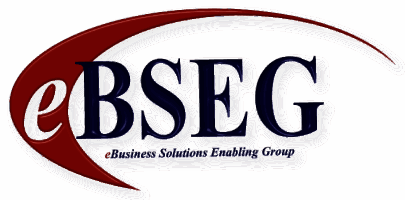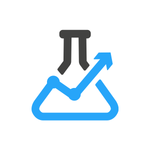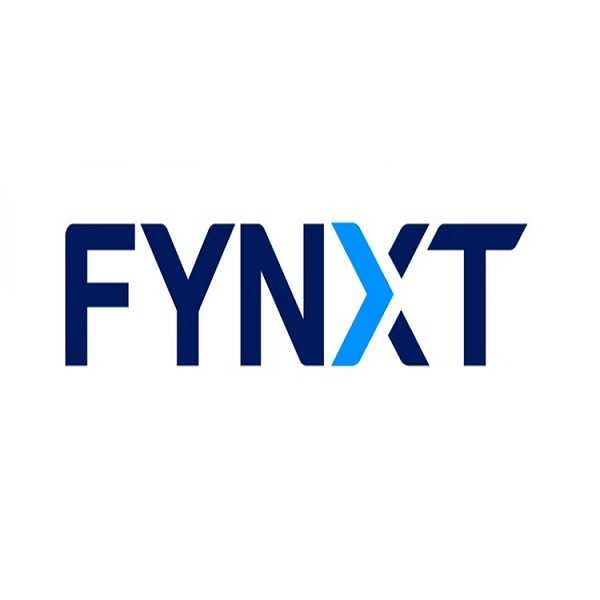Yes, most stock brokerage software is accessible across numerous devices and platforms. This enables customers to trade and manage their investments while on the go, utilizing a desktop, laptop, tablet, or smartphone. The program is designed to work with a variety of operating systems and can be accessed via web browsers or mobile apps. This allows customers to stay connected to the stock market and make informed judgments from any location, at any time.
List of Best Stock Brokerage Software
TurnKey Broker is a online trading platform for brokers, traders, hedge funds, and financial businesses globally. Our robust solutions provide an enhanced trading experience, from stock options to advanced tools. With TurnKey, trade seamlessly, effic...Read More TurnKey
PHI1 is the algo trading software that simplifies and streamlines daily trading. Say goodbye to monotonous tasks with advanced charting, customized screeners, and strategy building features. Effectively backtest and manage risk with ease, while enjoy...Read More PHI 1
Tradesocio is a premier software provider offering cutting-edge B2B investment management solutions. Our state-of-the-art platform offers tailored white-label options for Robo-advisory, SMAs, mirror trading, and equity investments. Our goal is to del...Read More Tradesocio
Bullionz is a digital token that is backed by physical gold and provides secure storage across our network of vaults. Our gold bars and coins are fully insured, giving you peace of mind and the ability to earn passive rewards and yields. With global...Read More Bullionz
eBSEG Digital Trading is a advanced brokership system that offers a comprehensive omnichannel trading experience. Stay updated with real-time market services, market interests, and overviews, and seamlessly integrate online for convenient trading. Ge...Read More eBSEG Digital Trading
Formula Stocks is a platform for maximizing your stock investments. Our data-driven approach utilizes model portfolios and monthly trading signals, providing personalized recommendations based on your portfolio size. We prioritize transparency and ba...Read More Formula Stocks
FYNXT - the leading fintech solution from Singapore. Our unique NXT-Gen Low Code and Modular Digital Front Office platform is changing the game in the financial services industry. With FYNXT, multi-asset brokers and other financial institutions can s...Read More FYNXT
SpeedBot - Indias premier algo trading application and online platform for stock trading. With a wide range of features, trading becomes easier and more efficient. Our top-notch tools improve your overall trading experience. Discover the incredible c...Read More SpeedBot
Tradetron the platform that simplifies algorithmic trading for everyone. No more coding required - utilize cloud-based tools for strategy development, backtesting, and execution. Experience effortless and efficient automated trading with Tradetron, s...Read More Tradetron
CapitalXtend, the premier trading platform designed for seamless and efficient transactions. Offering an extensive selection of instruments, highly competitive spreads, and impressive leverage capabilities of up to 1:5000, this platform has earned th...Read More CapitalXtend
HyperSoft PMS is a management solution for your trading and stock portfolios. Developed by the leading back-office software provider for stockbrokers in India, this cutting-edge tool enables seamless portfolio management and real-time valuation. Keep...Read More HyperSoft PMS
Scottrade makes it easy for individuals to create a new brokerage account, even if they already have one with a different broker. Their brokerage stocks are not insured by the FDIC and do not represent securities or obligations of the bank. These inv...Read More Scottrade
OptionsHouse the online brokerage platform designed for easy navigation. With a quick 8-minute setup, you can unlock our customizable software and confidently take advantage of market opportunities. Our cutting-edge trading tools effortlessly allow y...Read More OptionsHouse
HyperStock - the premier Windows and RDBMS software for stock broking operations. Boasting an impressive user base of over 800 satisfied clients in India, this multi-user, multi-exchange solution is unmatched in reliability and performance. Trust in...Read More HyperStock
Robinhood prioritizes the safety of user information by implementing top-of-the-line security measures. Unlike other brokerages that charge for real-time data and delay quotes for up to 20 minutes, Robinhood provides free and timely market data direc...Read More Robinhood
eSignal is trading software that seamlessly integrates with various stock brokers, providing users with instant and reliable access to real-time market prices. With its robust stock screeners and customizable tickers, traders can easily stay informed...Read More eSignal
Firstrade is the top choice for self-directed investors. Our highly-rated brokerage platform offers a range of services, without any recommendations or advice on finances, investments, legal matters, or taxes. We prioritize empowering our clients to...Read More Firstrade
E*TRADE is a financial services software, providing an online brokerage platform for investors. With professional advice and extensive educational materials, E*TRADE enables individuals to reach their investment goals, whether short-term or long-term...Read More ETRADE
SAG Investor. This cutting-edge portfolio management software provides a complete set of features at an affordable cost. Leveraging innovative technology, SAG Investor enables investors to effectively handle their portfolios and make informed choices...Read More SAG Investor
Learn More About Stock Brokerage Software
- What Is Stock Brokerage Software?
- What Are The Recent Trends In Stock Brokerage Software?
- Benefits Of Using Stock Brokerage Software
- Important Factors To Consider While Purchasing Stock Brokerage Software?
- What Are The Key Features To Look For In Stock Brokerage Software?
- Why Do Businesses Need Stock Brokerage Software?
- How Much Time Is Required To Implement Stock Brokerage Software?
- What Is The Level Of Customization Available In Stock Brokerage Software?
- Which Industries Can Benefit The Most From Stock Brokerage Software?
- Conclusion
What Is Stock Brokerage Software?
Stock brokerage software is a digital platform that allows investors and traders to purchase, sell, and track securities including stocks, bonds, and mutual funds. This software is intended to expedite transactions and give real-time data analysis and portfolio management tools, making it an indispensable tool for stock market fans and professionals. With stock brokerage software, customers may access numerous markets and trade a wide range of securities with a few clicks.
It has a user-friendly design that enables for easy browsing and transaction execution, regardless of experience level. Furthermore, most stock brokerage software includes complex tools like customisable charts, technical indicators, and news feeds, which provide users with vital insights and information to make informed investment decisions. One of the primary benefits of stock brokerage software is its speed and efficiency.
Unlike the usual way of placing trades through a broker, this program enables quick transaction execution, reducing the danger of losing out on profitable possibilities. It also provides real-time market data, allowing users to monitor their investments and make modifications as market conditions change. Furthermore, stock brokerage software is expandable, which means it can accommodate a wide spectrum of investors, from novices to seasoned professionals.
It also provides a variety of account alternatives to meet individual needs and preferences, including commission-based and flat-fee pricing structures. Whether you're a long-term investor looking to diversify your portfolio or an active trader looking to profit from short-term price swings, stock brokerage software is a must-have in today's fast-paced financial markets. With its extensive features, speed, and flexibility, this software is essential for anyone wishing to take their stock market activities to the next level.
What Are The Recent Trends In Stock Brokerage Software?
Recent developments in stock brokerage software have transformed how investors and traders conduct their trades. With the digitalization of financial markets and the increased use of technology in the investment industry, there has never been a greater demand for efficient and user-friendly stock brokerage software. One of the most significant advances in stock brokerage software is the incorporation of advanced analytics and artificial intelligence (AI) capabilities.
These tools improve the understanding of market trends and patterns, allowing traders to make data-driven judgments. AI-enabled software can also deliver individualized investment suggestions and portfolio management services. Another trend is the increase of mobile trading platforms. As more people rely on smartphones for a variety of functions, it is only inevitable that stock brokerage software will become more mobile-friendly.
Mobile trading apps make it easier for investors to trade and track their money while on the road. The incorporation of social trading is also becoming widespread. Social trading platforms enable users to communicate, exchange information, and even replicate the moves of successful investors. This trend introduces a new degree of community and participation into the stock trading sector.
There has also been an increase in the use of cloud-based technologies for stock broking. Cloud technology provides various advantages, including greater security, scalability, and accessibility. It also enables for faster and more reliable data processing, which improves trade efficiency. The employment of automation in stock brokerage software is a long-standing yet ever-changing trend.
Investors can use automated trading to set up rules and criteria for their trades, which the software will then execute. This feature decreases the possibility of human error while also allowing for speedier trade execution. Furthermore, there is an increasing emphasis on user experience in stock brokerage software. Software developers are improving the user experience for traders by providing user-friendly interfaces, customized dashboards, and real-time data updates.
Benefits Of Using Stock Brokerage Software
Stock brokerage software, also known as trading platforms or investment management software, is an effective tool for individuals and businesses who want to trade stocks, bonds, and other financial assets. The software uses cutting-edge technology and features to make trading easier, faster, and more efficient.
Let's explore, we'll go over the advantages of utilizing stock brokerage software and why it's vital for any investor's arsenal.
1. Access To A Broad Range Of Markets And Instruments: One of the primary benefits of using stock trading software is the opportunity to access a diverse range of financial markets and products. Traditional trading methods restricted investors to their local markets; but, with brokerage software, you may now trade on worldwide marketplaces, giving you access to a vast pool of investment opportunities. Furthermore, these platforms include a wide choice of financial instruments, such as stocks, options, futures, ETFs, and more, giving you greater freedom in your investment decisions.
2. Real-Time Data And Analysis: Another big advantage of using stock brokerage software is the availability of real-time data and analysis tools. These platforms provide real-time updates and insights on market trends, stock prices, and other pertinent information, helping you to make more informed trading decisions. You can also tailor the data and analytical options to your own requirements, such as setting up alerts for price changes and building watch lists.
3. Automatic Trading And Order Management: Stock brokerage software frequently includes automation tools that allow you to conduct transactions automatically depending on predefined parameters. This function dramatically decreases the possibility of human error and allows you to capitalize on market opportunities rapidly. The program also has comprehensive order management tools, which make it easier to track and manage several orders at once.
4. Cost-Effective: Individuals and businesses wishing to invest in stocks may find that using stock brokerage software is a less expensive option. These platforms charge lower costs than typical brokerage firms, making them more affordable for new and intermediate traders. Furthermore, the software's automation tools can help you save time and resources, making it an excellent investment choice for busy persons.
5. User-Friendly Interface: Stock brokerage software is designed to be user-friendly, making it accessible to those who have no prior trading expertise. The interface is usually simple and visually appealing, with adjustable options to fit your needs. Most platforms also provide instructional tools and customer assistance to help you use the program and better understand the trading process.
Important Factors To Consider While Purchasing Stock Brokerage Software?
When it comes to acquiring stock brokerage software, there are several crucial elements to consider to ensure that you are making the best decision for your financial organization. With so many alternatives available, it can be difficult to evaluate which software will best meet your needs.
Let's explore, we've selected crucial factors to consider to make your decision-making easier.
1. User-Friendly Interface: The most important consideration is the software's ease of use. It is critical to look for a user-friendly platform with a straightforward UI. This will save you and your team time and resources on system training and familiarization. Furthermore, a user-friendly platform would enable a smooth and effective workflow, making day-to-day operations easier.
2. Customization Options: Each stock brokerage firm is unique, with its own set of requirements. As a result, it is critical to select software that provides customized features. This allows you to modify the program to your own business processes and requirements. Investing in a platform that can be tailored to your specific company model is preferable than going with a one-size-fits-all solution.
3. Security And Compliance: Handling financial data carries its own set of hazards. As a buyer, you must check that the stock brokerage software you choose has high-quality security measures. Look for ISO-certified platforms with robust data encryption methods in place. This will protect your data and maintain regulatory compliance, providing you piece of mind when handling sensitive information.
4. Integration Capabilities: In today's technological landscape, it is critical that software integrates easily with other apps and tools. When evaluating stock brokerage software, examine its integration possibilities with other systems such as accounting software, CRM, and reporting tools. This will improve your overall experience while streamlining your business operations.
5. Customer Support: Technology is not without flaws, and technological glitches do arise from time to time. As a result, it is critical to select a software vendor that provides dependable and accessible customer assistance. Look for organizations that offer 24/7 assistance, a dedicated staff of professionals, and several routes of communication to ensure speedy and effective issue resolution.
6. Pricing And Scalability: Finally, you must analyze the software's pricing and scalability. Evaluate your budget and decide whether the platform is worth the cost. It is also critical to select software that can grow with your organization and be scaled up as needed. This will prevent you from having to switch software in the future.
What Are The Key Features To Look For In Stock Brokerage Software?
When it comes to selecting the best stock brokerage software for your needs, there are several important factors to consider. These characteristics can influence the efficiency and efficacy of your trade, as well as the overall user experience.
Let's explore, we'll go over the key features to look for in stock brokerage software.
1. User-Friendly Interface: A user-friendly interface is one of the most significant aspects to look for when choosing stock brokerage software. This features simple navigation, clear and succinct menus, and an intuitive layout. A cluttered or unclear interface can slow down trade and make it more difficult to manage the software, resulting in a less efficient overall experience.
2. Real-Time Data And Market Information: Successful trading requires accurate and current data and market information. Look for stock brokerage software that offers real-time data and market updates, such as stock prices, news, and charts. This will allow you to make informed selections and stay current with market trends.
3. Customization Options: Because each trader has distinct methods and preferences, it is critical to select stock trading software that allows for customization. This includes the option to establish watchlists, set alerts and notifications, and tailor charts and layouts to your specific trading style.
4. Multiple Trading Platforms: Some stock brokerage software only provides one trading platform, whilst others offer several possibilities. It's important considering software that supports various platforms because it provides you the freedom to choose the platform that best meets your requirements and preferences.
5. Security Features: With the growing threat of cyber assaults, it's critical to select stock brokerage software with strong security features. Look for software that has encryption, two-factor authentication, and frequent security updates to protect your personal and financial information.
6. Portfolio Management Tools: Keeping track of your investments can be difficult, especially if you have a varied portfolio. Look for stock brokerage software that has portfolio management features including performance tracking, tax reporting, and risk analysis. These features can help you make better investing decisions and track the performance of your portfolio.
7. Integration With Other Services: Some stock brokerage software includes integration with other financial services, such as budgeting or tax preparation software. If you use these services, it may be useful to select stock brokerage software that interacts with them, as this can save you time and simplify your financial management.
Why Do Businesses Need Stock Brokerage Software?
As firms expand and invest more, the requirement for fast and effective stock brokerage software grows. This technology is a comprehensive and necessary tool for firms to optimize their stock trading procedures, analyze market movements, and make sound investment decisions. One of the primary reasons organizations use stock brokerage software is the ability to automate time-consuming processes.
Businesses can use the software's extensive features to manage their portfolios, conduct trades, and track real-time market data without requiring manual input. This automation not only saves time but also lowers the possibility of human error, resulting in accurate and efficient trading. Furthermore, stock brokerage software helps organizations gain a better understanding of their investments.
The platform offers real-time portfolio analysis, performance tracking, and risk management features, offering firms a complete picture of their investment performance. This information enables them to make better decisions and adapt their strategy accordingly. Furthermore, stock trading software gives organizations access to a diverse selection of investment alternatives.
Businesses can use this technology to simply diversify their portfolio and invest in a variety of assets, such as stocks, bonds, mutual funds, and more. This diversification reduces risk while potentially increasing returns for businesses. Furthermore, stock brokerage software gives organizations advanced research and analytical tools. These technologies enable organizations to perform extensive research into potential investments, trends, and market swings.
This information enables firms to make data-driven decisions and remain ahead of market trends. Finally, stock brokerage software gives organizations convenience and flexibility. Many software suppliers provide intuitive and user-friendly interfaces, making it easier for businesses of all sizes to navigate and utilize their software. Furthermore, firms may use the software from anywhere with an internet connection, giving them flexibility and remote trading capabilities.
How Much Time Is Required To Implement Stock Brokerage Software?
The time necessary to integrate stock brokerage software varies depending on the software and the size of your brokerage firm. However, the typical timescale for implementation can vary from a few weeks to many months. The first stage in installing stock brokerage software is to determine your specific business requirements and goals. This may entail doing a review of your current processes and identifying areas where the software might increase efficiency and productivity.
Next, choose a software vendor and complete the purchasing and installation procedures. This could take several weeks of negotiations, demonstrations, and training sessions. Once deployed, you must adjust the software to meet the specific requirements of your brokerage firm. This can include creating user accounts, establishing workflows, and connecting the software with your current systems.
The time necessary for this phase will be determined by your firm's complexity and the level of customization required. After the program is customized, it must go through a testing and debugging step to guarantee that it is working properly. This can take several weeks, depending on the number of issues that must be handled. The final stage is to train your team on how to use the software efficiently.
This can take anything from a few days to several weeks, depending on the software's complexity and your staff' level of expertise. Overall, the time it takes to implement stock brokerage software varies from 4-6 weeks for smaller organizations to several months for larger, more complicated firms. It is critical to allow enough time for the full implementation process to ensure a seamless and effective transition.
What Is The Level Of Customization Available In Stock Brokerage Software?
Stock brokerage software includes a variety of features and tools to assist investors and traders with portfolio management, market trend analysis, and trade execution. One key factor to consider when selecting stock brokerage software is the level of customization available. This refers to the flexibility and control that users have in customizing the software to meet their specific needs and preferences.
Most stock trading software provides for some level of customisation, such as creating custom watchlists, configuring bespoke alerts, or selecting preferred chart layouts. However, the level of customization might varies greatly amongst software alternatives. On a basic level, users can tailor their homepage to display their chosen market data and news sources.
They can also select from a wide range of chart layouts and indicators to suit their trading approach. Advanced customization features may include the ability to develop individual trading strategies and algorithms, establish specific trade execution rules, and even produce bespoke reports and statistics. Some stock brokerage software allows for customization in the form of connectors with third-party services such as financial news sources, research tools, and trading platforms.
This enables consumers to access all of the tools and information they require in one location, resulting in a more efficient and streamlined trading experience. When considering stock brokerage software, it is critical to consider the level of customization available to evaluate whether it matches your individual requirements and trading style. Consider your trading objectives and preferences, then select software that provides enough flexibility and control to help you reach them.
Which Industries Can Benefit The Most From Stock Brokerage Software?
Stock brokerage software is an extremely useful tool for investors, traders, and financial organizations. Its comprehensive features and tools provide a competitive advantage in the fast-paced stock market. However, with so many software solutions on the market, it can be difficult for consumers to find the correct one.
We'll go over which industries can benefit the most from stock trading software to assist purchasers make informed decisions.
1. Banking And Financial Services: The banking and financial services industry depends significantly on stock trading to generate revenue. Stock brokerage software can assist these institutions in efficiently managing and executing trades, accessing real-time market data, and making sound investment decisions. It also provides a variety of analytical tools that help with portfolio management and risk evaluation.
2. Hedge Funds And Asset Management: organizations handle a huge number of trades and investments. Stock brokerage software reduces operations and improves operational efficiency. It also provides a full view of clients' portfolios, allowing them to make more informed investment decisions and track their success.
3. Brokerage Firms: Stock brokerage software is an essential tool for stock brokerage firms. It enables these companies to serve their clients properly by delivering in-depth market information and insights. This software allows them to conduct trades rapidly, eliminate human error, and boost customer satisfaction.
4. Retail Investors: Individuals who invest in the stock market with their own money. Stock brokerage software provides a user-friendly interface, allowing them to handle their investments autonomously. They can view real-time market data, track their portfolios, and receive trade notifications to help them make sound financial decisions.
5. Individual Traders: Individual traders, sometimes known as day traders, execute short-term deals to profit from market changes. Stock brokerage software with advanced features such as real-time market data, charting tools, and technical indicators can assist traders in making quick trading decisions and increasing earnings.
Conclusion
Finally, selecting the appropriate stock trading software can have a significant impact on your investment success. When making a decision, consider cost, functionality, usability, and customer support. Furthermore, understanding your individual investment demands and goals will help you select the program that best meets your needs. Following extensive research and review, we have chosen some of the best stock brokerage software solutions on the market.
These include XYZ software, which provides a comprehensive suite of tools for active traders and investors, and ABC software, which caters to the needs of new investors with an easy-to-use interface and reasonable cost. Finally, the key to choosing the perfect software for you is to thoroughly examine your personal requirements, consider various features and pricing alternatives, and use free trials or demos to get a feel for the product before making a commitment.
With the correct stock brokerage software, you can simplify your investment process, stay informed, and make sound trading decisions. We hope this buyer's guide has helped you narrow down your selections and make a confident purchase decision. Happy investing!
Stock Brokerage Software FAQ's
Can Stock Brokerage Software Be Accessed Across Multiple Devices And Platforms?
Is Stock Brokerage Software Future-Proof And Adaptable To Emerging Technologies Like AI, Blockchain Or IoT?
Yes, stock brokerage software is meant to be future-proof and adaptable to upcoming technologies such as artificial intelligence, blockchain, and the Internet of Things. As the financial industry evolves, stock brokerage software is regularly updated and integrated with cutting-edge technologies to improve functionality and provide customers with a seamless experience.
This guarantees that the software remains relevant and efficient in an ever-changing market, allowing stock brokers to stay ahead of the competition and make sound judgments for their clients.
Is There A Free Trial Offered To Assess Stock Brokerage Software Before Committing?
Yes, most stock brokerage software businesses provide a free trial to evaluate their platform before committing to a paying subscription. It enables potential customers to examine the software's features and functions, comprehend its usability, and determine whether it fits their trading requirements. Free trials usually last from 7 to 30 days, depending on the provider. It is recommended that you take advantage of the free trial before making a decision.
Does Stock Brokerage Software Offer Data Security Features And Meet Regulatory Compliance Standards?
Yes, most stock trading software includes data security measures like encryption, firewalls, and multi-factor authentication to safeguard sensitive financial data. To maintain a safe and compliant trading environment, they also follow regulatory criteria and standards established by organizations such as the Securities and Exchange Commission (SEC) and the Financial Industry Regulatory Authority (FINRA). Users may be confident that their data is secure and confidential when using these platforms for stock trading activities.
Can Stock Brokerage Software Integrate Seamlessly With Existing Tools And Platforms?
Yes, stock brokerage software can work perfectly alongside existing tools and platforms. Most modern brokerage software includes APIs (application programming interfaces), which allow it to interact and communicate with other software.
This guarantees that data and information flow smoothly between different tools and platforms, allowing stock brokers to handle their assets and trades more easily and efficiently. Many brokerage software also integrates with common platforms like Excel, making it simple to input and export data.





















